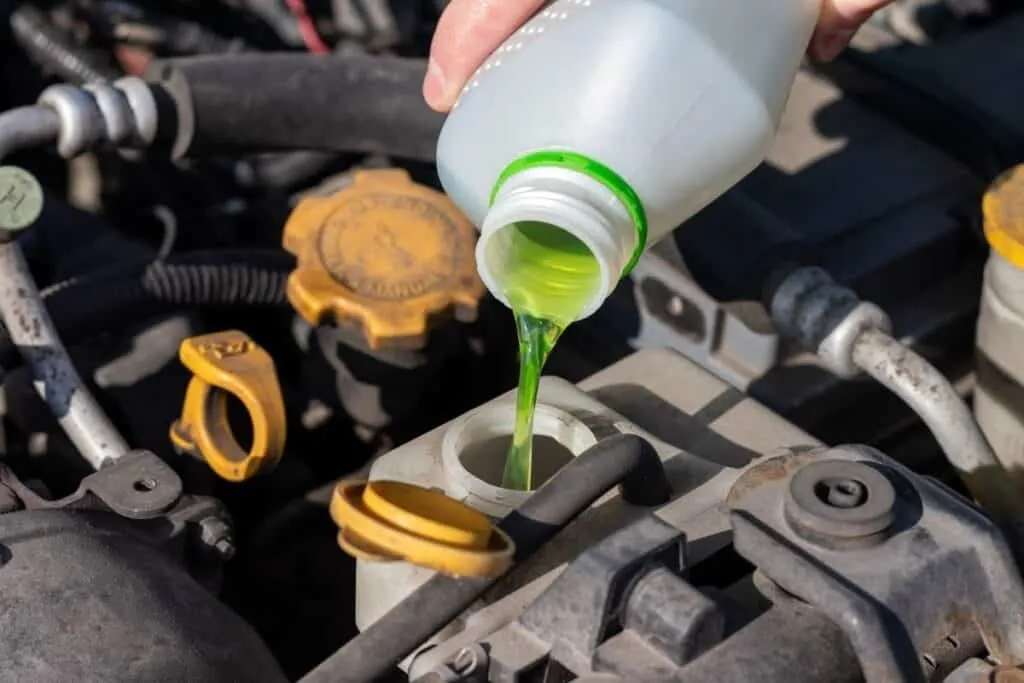When I moved to the hilly state of Colorado, the first thing I noticed was an incredible number of Subarus. Everyone in my neighborhood had a Subaru. It seemed that everywhere I went, someone had a Subaru.
There is no question that the Subaru is one of the most popular vehicles on the road today. Manufactured by some of the finest minds in the field, the Subaru reputation is one of dependability and easy driving.
A Subaru should run for at least 200,000 miles with proper care and maintenance. They have excellent reliability ratings and are well-known as being dependable vehicles.
With the strength of a solid reputation behind it, let’s take a deeper look at how long you can expect a Subaru to last.
Subaru Mileage Expectations
Getting a lot of miles out of an automobile is something of an achievement these days. With leasing options and trade-in deals constantly available, it seems less and less likely to find someone who has been driving the same old tin can since college.
Vehicles that last are the vehicles people want to buy. Racking up the miles on the odometer should never give a car owner heart palpitations. They should be able to trust that their car will get them where they need to be, as long as they need to be there.
The Subaru reputation stems in part from its high mileage capacity. These cars are known for being dependable. They have won awards for their durability!
And although repairs can always be expensive, Subaru owners would likely call them reasonably cheap vehicles.
The Subaru Outback is the most popular station wagon on the road these days. Its mileage capacity is one explanation. Having a lot of miles on the average four-door sedan means something different than having lots of miles on a Subaru.
Some can last up to 300,000 miles if they are taken care of properly. The Subaru Outback and the Subaru Forester tend to last well past 200,000 miles, and that’s more than most of their primary competitors.
As one of the most trusted automotive brands, Subaru has created a vehicle that turned the station wagon into one of America’s most beloved models. Specifically, the longevity of the Subaru Outback has made it one of the most popular vehicles on the road today.
With the proper care and maintenance, a Subaru should run for at least 200,000 miles. While some avid fans of the automobile might claim they have never had a problem with their Subaru, a big part of staving off difficulties is keeping up with routine repairs.
Regardless of the year, the Subaru is expected to go far. Because of their stellar reputation, a Subaru with high mileage is not that hard to sell as a used vehicle. It isn’t uncommon to see a used Subaru for sale with over 150,000 miles on the odometer.
Common Subaru Problems That Limit Lifespan
The best way to avoid recurring problems with the Subaru is to take it in for routine inspection. Getting the car properly serviced makes it that much more likely that the car will exceed performance expectations.
There are a few common problems, however, that tend to plague Subarus and should be watched closely.
1. The Engine
The Subaru is known for its four-cylinder, liquid-cooled, horizontally opposed boxer engine. This piece of machinery operates on pistons that move toward each other horizontally, creating a counterbalance that accounts for the Subaru’s smooth ride.
The complexity of the boxer engine means an increased likelihood for complex engineering problems. Some of the most common problems in a Subaru can be traced back to the engine and issues that have gone unchecked, such as:
- Stalling caused by a faulty fuel pump
- Engine computer issues
- Faulty positive crankcase ventilation
- Engine oil leaks from faulty head gaskets
- Excessive oil consumption
While some of these problems might sound serious, the good news is that these issues are usually confined to specific engines from specific models. The new boxer engine series is performing remarkably well in its current reliability tests.
2. Fuel Pumps
Subaru is famous for using Denso’s low-pressure fuel pumps in its vehicles. While they are typically reliable, some internal defects can arise from the low-density item. It can crack, deform, or unnecessarily absorb fuel.
All these issues tend to lead to the same problem: the fuel flow is interrupted. When that happens, fuel pump failure can quickly lead to problems with other parts of the car. For example, the high-pressure fuel pump can overheat when it isn’t lubricated properly.
Eventually, the engine will overheat, and the car will begin to run rough. This is usually noticed by shaking, which can also lead to premature wear and tear on the engine and the catalytic converter – not the sort of thing any car owner wants to deal with.
Similar to the engine problems, these fuel pump issues seem to occur with certain Subaru years. While they aren’t widespread problems, they are something to be aware of and to have checked during regularly scheduled maintenance.
3. Batteries
The main problem with the Subaru batteries comes from a lack of power. When the batteries are underpowered, they drain faster, and they die. This can cause an array of issues for the Subaru driver.
The problem does not stem back to the battery specifically but rather the controller area network (CAN). Without a proper sleep mode, when a car is turned off, the vehicle can overheat the system and drain the battery of its power.
Similarly, if software errors exist in the car’s programming, the battery won’t conserve power the way that it should. This issue is called a parasitic drain, and it arises from the system never powering down completely.
4. Recalls
One thing to watch out for in the Subaru is the recall issue. While every vehicle can have a bad year, some seem particularly plagued by troubling, recurring problems.
When the problems go unchecked, the reliability of the vehicle tends to falter.
The most recent Subaru recalls are predominantly associated with affected brake lines, puddle lights, and the steering column. These are all issues that can usually be caught through scheduled, routine maintenance.
5. Other Problems
Subarus are not perfect vehicles, and they do have some issues that are more common than others.
Some of these include problems with the air conditioning unit, the inner joint boots, the head gaskets, and the front suspension.

How To Increase The Life Expectancy Of A Subaru
The best way to increase the life expectancy of a Subaru is to keep up with the routinely scheduled maintenance. This will keep the car in good working order for a long time.
Staying current with the oil changes and keeping up with regular service will prevent unnecessary wear and tear on the vehicle.
It’s also important to be aware of the engine. Since Subaru engines can be more problematic than others, it pays to give them a little extra attention.
Take the necessary steps to go easy on the engine, like letting it warm up for a few minutes before setting off on an adventure. After parking, let the engine cool down for a minute or two before shutting the vehicle off. This is especially important after a long drive.
Another easy way to maintain the life of a Subaru is to take care of the tires. Checking the tire pressure regularly, having the tread inspected during an oil change, and watching for leaks are all simple tools that will ultimately help keep the Subaru on the road longer.
Frequently Asked Questions (FAQs)
Considering the popularity of the station wagon-style automobile, it’s understandable that a lot of questions would circulate about its reliability. I’ll try to cover a few of those here.
Are Subarus long-lasting cars?
The Subaru maintains a long-held reputation for being a long-lasting vehicle. According to the Subaru manufacturers, 96% of all their vehicles sold in the last ten years are still on the road. That’s more than all the primary competitors.
Do Subarus break down a lot?
The simple answer is no; they do not break down a lot. Subarus are known for their reliability, dependability, and durability. They have some rough models where rankings have dropped, but the brand is always striving to improve their machines.
Are Subarus reliable cars?
Yes, Subarus are reliable. While they can have some repetitive issues, these problems can usually be handled and even deterred by keeping a regular service schedule with a mechanic qualified to work in Subarus.
What is considered high mileage for a Subaru?
Most Subarus can run easily for 150,000 – 200,000 miles with very few issues. As long as the owners take care of the automobile, this should be a fairly easy accomplishment.
Are Subarus high-maintenance?
Subaru repairs can be somewhat expensive. However, they are known for being relatively cheap to own because regular inspection and maintenance can prevent a lot of the common issues that might otherwise plague the vehicle.
Do Subarus hold their value?
Subarus are known for holding their value better than most other car brands. Because they are reliable and durable, a used Subaru with 150,000 miles on it can sell with little issue.
